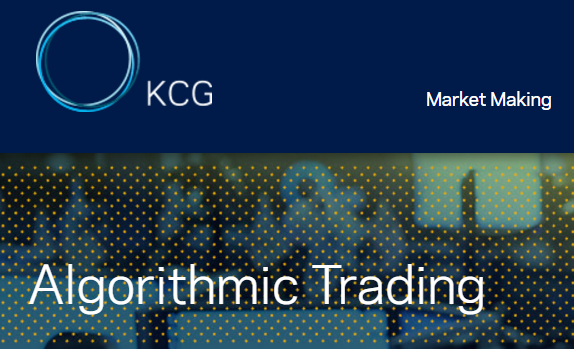Robinhood’s Exceptionally Clever Business Model = Arbitraging Privacy
Robinhood offers free trading, but free doesn’t mean costless.

Value Proposition: Robinhood is a fintech company that lets you trade stocks for free. Without a physical footprint, Robinhood has a cost structure advantage over players like Scottrade and Fidelity (who charge between $7–8 a trade). Robinhood makes the majority of their revenue by routing orders through Apex Clearing, Citadel, KCG, and Two Sigma. These are all high frequency trading firms. When detractors talk about Robinhood, this is the main source of controversy around the company.
How do you make money?
I think people intuitively know that if something is free, there’s usually an exchange further down the line. If there’s a website, there’s an advertisement. If flight tickets are inordinately cheap (like Spirit), we intuitively know we’re making a trade off. So it’s pretty natural to ask, how does a free trading app make money?
Here’s how Robinhood describes the way they generate revenue, by “collecting interest on the cash and securities in Robinhood accounts, much like a bank collects interest on cash deposits.” This is a screenshot.

Hmm, OK that’s interesting.
The description above is fairly recent, so I trust it to be accurate, but I think there’s a better description found in the SEC Rule 606 Report Disclosure. This is the report that Robinhood must prepare for the SEC with respect to their order routing practices. In it you’ll find a page that looks like this (link below):

So what does this say? It says that Robinhood receives money by routing non-directed orders to these four exchanges. As of their 4Q16 report, they gave roughly 30% of their total non-directed orders to KCG, 29% to Citadel, 25% to Two Sigma, and 16% to Apex. If you don’t know who these companies are, they’re market makers that also have high frequency trading arms.

“If you don’t see the product, you’re the product.”
I don’t think there’s anything wrong with making a buck, but it’s something you should probably know if you’re using Robinhood. Personally, I think it’s extremely clever. Let me explain.
So I think if we take a balanced look at their business, Robinhood seems to make money by selling your orders to high frequency trading firms. It’s unclear if they give these firms access to their API, but my hunch is that they do. Now, on its face that’s cause for concern…
Intuitively, you probably don’t want your trading orders to be read by someone else (especially if they could act as a counterparty), because if they know you’re a buyer, they can probably inch their offer up slightly and shave a bit of money out of your purchase.
On any individual order, you probably won’t get taken for a ride — and maybe you’re even OK with that, since you get to make a trade for free. As long as your slippage cost is below $7 on your total order, maybe you even come out ahead.
Even if you don’t particularly enjoy having your order info sent to a high frequency shop, Robinhood’s business model is resilient because when everyone gives up a little, no one is angry or incentivized enough to stop the process.

Here’s the game plan…
Not to bury the lead, but I think Robinhood makes even more money for high frequency trading firms (remember, they’re the clients and your orders are the product).. by marking retail orders verses institutional orders. If you put in an order, that’s retail. If GS Asset Management puts in an order, that’s institutional.
The reason why this matters is many high frequency trading firms are in the business of joining along (not exactly front-running…) larger institutional orders. If a large buyer builds a position and starts buying, prices tend to rise as there’s only so much liquidity. Also, sellers are smart and they know they can raise prices if someone needs a lot of stock. In short, joining the party is profitable when you know others are buying.
So the game plan for these high frequency trading shops might be:
“OK Robin Hood, we are very interested in knowing what trades are 100% likely to be retail, and that will help us identify larger institutional money flow (what’s not retail is institutional), and that will help us find the really profitable tag-along trades.”
Maybe none of that actually happens. Maybe these sophisticated market makers have multiple strategies that identify the type of order flow and this is a small part in their constellation of tools (likely).
But this is a question of the value of privacy…
Taking a step back, it’s unclear if any of this happens, but I do find it strange that Robinhood defines their revenue generation differently than what you might surmise from their SEC disclosure.
But I think what this is really about, is what is the value of privacy? Retail investors / traders who use Robinhood likey don’t value their own privacy, even though in aggregate that personal information is extremely valuable.
By making sense of this exchange of individual data for services, which may be a totally legitimate and thoughtful exchange between user and company, Robinhood has created an exceptional business.
Why not arbitrage the value of privacy?
If people don’t care that other’s know what they’re doing and are willing to give their information away for free, why get in the way of that? People who do care can self-select out of free. They can go to Scottrade. And for those that do care but not really, Robinhood is still a great platform for them.
After all, this sounds like a couple of other business models, right?


I work as a research analyst at a mutual fund in Boston and write these notes for fun (not investment advice, doesn’t reflect the views of my employer). Would love to connect at: linkedin.com/in/jasonyum

